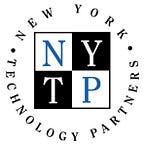Transferable Skills: How to Pivot and Remain Relevant in a Turbulent Job Market
Now, more so than any time in recent memory, transferable skills are being sought after within industries that are hiring. This article gives an overview of some of the most in-demand transferrable skills, and how job-seekers can develop and improve them.
Introduction
Amid an ever-changing economy and correlated job market, flexibility and adaptability are key as broad and likely lasting changes are expected to take hold. As mentioned previously in this blog, the impact of the COVID-19 epidemic has brought about immense shifts in both business and societal norms — harming some industries, such as the hospitality, media, and creative industries, while aiding others, including technology, medicine, and manufacturing industries.
Developing & Demonstrating Your Transferable Skills
If you’ve found yourself laid off or furloughed recently, focusing on developing and/or accentuating transferable skills within your resume and job applications can be a great way to put yourself ahead of other applicants when applying for jobs in another industry. While being faced with economic hardships within one’s current industry can feel like being given a death sentence — it is worth considering that some of the most sought-after skills in other industries may be transferable from your work history. According to a report from Indeed, among the most in-demand transferable skills desired by employers include:
Communication
In many jobs, effective communication is critical to ensure that needs are being met between coworkers and/or customers/clients. Among the most basic components of communication include providing and responding to questions, in addition to effective listening skills. From there, good reading and writing skills are frequently sought after in many jobs, as this can aid in communication amongst coworkers via email and/or instant messaging.
Dependability
Employers appreciate workers who they can trust will have a level of consistency in their work ethic, showing up on time, communicating effectively, and reliably accomplishing tasks. Nearly every job imaginable includes some level of expected dependability, so don’t be afraid to reference times when you met these expectations in times past.
Teamwork
Some level of collaboration is nearly inevitable in most lines of work, so it would make sense that teamwork would be a sought-after skill by employers. If you are looking to talk up your teamwork skills in your resume or a cover letter, consider examples within your personal work history in which you worked in a team to accomplish more than you could have individually.
Organization
An organized workplace is a happy workplace. Demonstrating that you can keep your tools and work materials tidy, whether they be power drills and wrenches, or emails and digital files, can reduce time both for you and your organization. Organization skills also include making sure deadlines are accomplished on time and in the proper order.
Adaptability
As trite as it might sound, the world of business is perpetually in a state of change. Therefore, a worker who can stay on top of emerging trends, protocols and technologies will have increased cachet within the workspace. Moreover, workers who possess the versatility to take on different tasks and roles often find new ways to deliver value to their employer(s).
Leadership
Taking on leadership roles (not only within a work environment but also within volunteering and/or academic extracurriculars) can be a key means of demonstrating that you’re capable of going above and beyond within a team.
Technology Literacy
There is quite a range of different levels and applications of technological knowledge and skill. Among the most frequently transferable technical skills includes Microsoft Office and/or Google Workspace, however, several other commonly used applications/suites are also typical, depending on the industry. Other common industry-standard office suites include Salesforce, Hubspot, and Adobe Creative Cloud. Many of these software developers offer instructional videos on their websites if you are looking to brush up on your software skills.
Additional Advice
When applying to a job outside your cover letter, consider how you could relate the skills you practiced and developed in your previous role. Within your resume and/or cover letter, try to find ways to demonstrate quantifiable accomplishments that you achieved for your former employer. For example, if you worked as a cybersecurity professional, you could mention quantifiable improvements such as “Reduced annual company penetration rate by x%”, or “Coordinated and led a company-wide initiative to implement multi-factor authentication within 6 months”. While some specific tasks may not have a direct correlation with the industry that you are trying to pivot to, demonstrating that you have taken initiative and accomplished goals. Additionally, if you have a LinkedIn profile, the “Skills & Endorsements” section to highlight broad skills that you may have developed while working within previous roles.
Conclusion
As the plight of the Coronavirus continues to harm particular industries disproportionately, job seekers can redirect their existing skills and core competencies towards industries that are currently stable or even growing, including manufacturing and STEM. New York Technology Partners currently has a range of open positions within STEM & IT fields, and our recruiters are here to help you find your next career. Feel free to give one of our recruiters a call at (585) 300–4720 from 9 a.m. to 5 p.m. EST, Monday through Friday, or check out our current openings on Indeed.
